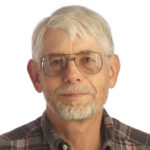In times of war, codes are a way to pass along sensitive information.
This isn’t a spy story, however. We’re talking about World War II sailors who just wanted to update the folks back home.
They include Vancouver resident Hal Berven, who was a crewman on the USS Gambier Bay, and former Vancouver resident Bill Tunstall, who spent part of his Navy hitch on the USS Kitkun Bay.
Both aircraft carriers were built at the Kaiser Shipyard during Vancouver’s baby flattop boom (a related story is on Page A1) and both ships took part in the Battle of Leyte Gulf (that story was on Page A1 on Sunday). Tunstall’s ship drew fire from the same Japanese warships that sank Berven’s carrier.
When service personnel wrote back home, they knew their letters would be at the mercy of military censors, so Tunstall and Berven devised ways of letting their loved ones track their progress across the Pacific.
Bill and Dottie Tunstall were married in 1943. Before heading back to sea on the USS Kitkun Bay, Tunstall took a map of the Pacific Ocean, charted it into grids, and wrote different greetings inside each grid. Then he created a duplicate map for Dottie.
Tunstall, who died June 26 in Portland, paired different combinations of “Dear” and “Dearest” and “Darling” with different combinations of “Dottie” and “Dorothy” and “Wife.”
There were several other variables. The greeting “Princess” meant that Bill had been somewhere near the New Hebrides Islands when he wrote the letter.
Bill figured his coded map covered just about the entire Pacific, he told The Columbian a few years ago.
Longitude, latitude
Berven used a different system in letters to his mother. He explained it a few days ago while being interviewed for Sunday’s Columbian story about combat in the Pacific.
“I told her that she would notice two numbers in my letter,” Berven said. Maybe he’d tell her how much money he’d won in a poker game.
“The first number was latitude, and the second was longitude. It worked out well.”
Off Beat lets members of The Columbian news team step back from our newspaper beats to write the story behind the story, fill in the story or just tell a story.



